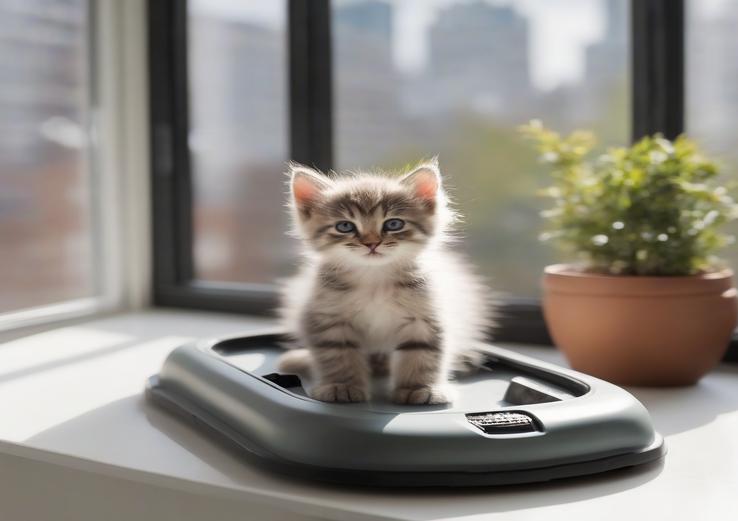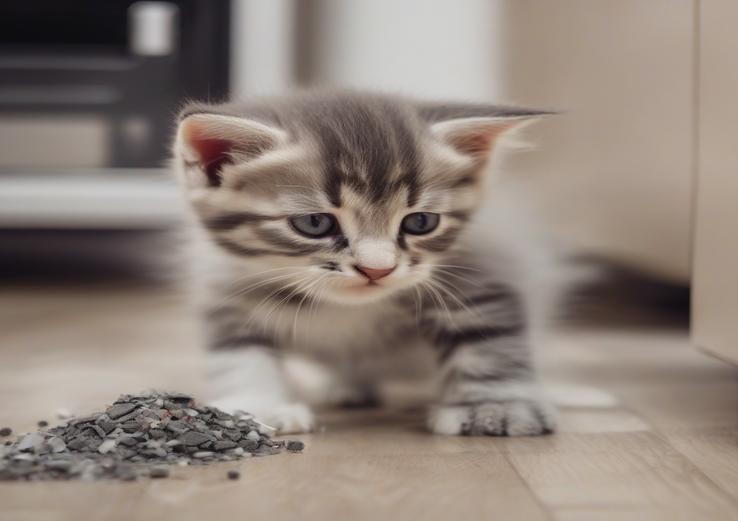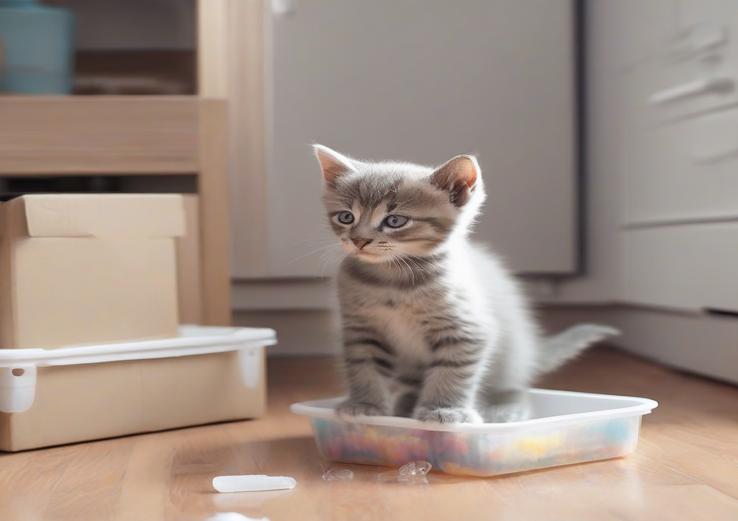Introduction to Litter Training a Kitten
Litter training is a crucial aspect of kitten care, and starting early is key to successful how to litter train a kitten in an apartment. According to PetMD, 80% of kittens can be litter trained by 3-4 months. This essential skill helps maintain a clean and healthy home, making it easier for you and your kitten to thrive in a small apartment. In fact, litter training a kitten in an apartment has several benefits, including a cleaner home and a healthier kitten. It’s crucial to begin the process as soon as possible to avoid accidents and make the transition smoother. By following the right steps and using positive reinforcement techniques, you can help your kitten learn to use the litter box in no time.

Preparing Your Apartment for Kitten Litter Training
When it comes to litter box training for kittens, choosing the right litter box, litter, and location is vital. Consider a quiet and private area, such as a bathroom or laundry room, where your kitten can easily access the litter box. A litter box with low sides, recommended by the International Cat Care organization, allows easy access for your kitten. Make sure to place the litter box in a spot where your kitten can easily find it, and keep it away from your kitten’s food and water bowls. This will help your kitten associate the litter box with its intended purpose and reduce the risk of accidents.
Step-by-Step Guide to Litter Training a Kitten
To how to litter train a kitten in an apartment, create a routine by placing your kitten in the litter box after meals. Reward good behavior with treats and praise, and be patient with your kitten as they learn. For more information on essential items for your kitten’s first year, visit our article 10 Essential Items for Your Kitten’s First Year. Use keywords like “kitten litter training tips” and “apartment litter box setup” to optimize your search. Remember to keep the litter box clean and well-maintained, as kittens are highly sensitive to smell and will avoid using a dirty litter box.
In addition to these steps, it’s essential to provide your kitten with a stimulating environment that encourages socialization and play. This can include providing toys, scratching posts, and climbing structures, as well as spending quality time with your kitten. By combining these elements, you can help your kitten develop into a happy and healthy adult cat.
Overcoming Common Litter Training Challenges
Accidents outside the litter box can happen, but there are ways to overcome this challenge. Increase the number of litter boxes or use positive reinforcement techniques to solve this issue. For example, a kitten owner in a small apartment successfully litter trained her kitten by using two litter boxes and rewarding good behavior. Read more about preventing accidents in our article Kitten Accidents: Why They Happen and How to Prevent Them. By being patient and consistent, you can help your kitten overcome any challenges and become a pro at using the litter box.

Advanced Litter Training Tips
For indoor kitten litter training, it’s essential to provide your kitten with a comfortable and private space to do their business. Consider using a litter box with a hood or a covered litter box to reduce odors and mess. You can also try using different types of litter, such as clumping or non-clumping, to see what works best for your kitten. Additionally, make sure to clean the litter box regularly to keep your kitten healthy and happy.
In terms of kitten socialization, it’s crucial to provide your kitten with plenty of opportunities to interact with people and other animals. This can include taking your kitten for walks, playing with your kitten, and introducing your kitten to new environments. By socializing your kitten, you can help them develop into a confident and friendly adult cat.
Real Owner Stories
Many kitten owners have successfully litter trained their kittens in apartments, and their stories can provide valuable insights and tips. For example, one kitten owner in a small studio apartment used a litter box with a hood and rewarded her kitten with treats and praise to encourage good behavior. Another kitten owner in a large apartment complex used multiple litter boxes and created a routine to help her kitten learn to use the litter box.

Conclusion and Additional Resources
In summary, how to litter train a kitten in an apartment requires patience, consistency, and the right resources. For more information, visit our article Kitten Care 101: A Beginner’s Guide. Check out these images for tips on litter box setup and kitten litter training:
– “Kitten using litter box in apartment”
– “Litter box setup in small apartment”
– “Kitten litter training process”
– “Apartment litter box location ideas”
– “Kitten playing near litter box”
Frequently Asked Questions
1. Q: How long does it take to litter train a kitten in an apartment?
A: According to PetMD, 80% of kittens can be litter trained by 3-4 months.
2. Q: What is the best litter box for a kitten in an apartment?
A: A litter box with low sides, recommended by the International Cat Care organization, allows easy access for your kitten.
3. Q: How can I prevent accidents outside the litter box?
A: Increase the number of litter boxes or use positive reinforcement techniques, as discussed in our article Kitten Accidents: Why They Happen and How to Prevent Them.
4. Q: What are some essential items for kitten litter training?
A: Visit our article 10 Essential Items for Your Kitten’s First Year for more information.
5. Q: Where should I place the litter box in my apartment?
A: Choose a quiet and private area, such as a bathroom or laundry room, and make sure it’s away from your kitten’s food and water bowls.
6. Q: How often should I clean the litter box?
A: Clean the litter box at least once a day, and change the litter completely every 7-10 days.
7. Q: Can I use multiple litter boxes in my apartment?
A: Yes, using multiple litter boxes can help prevent accidents and make litter training easier for your kitten.
About the Author:
As a seasoned animal care expert, I have years of experience in providing advice and guidance on kitten care and litter training. My goal is to help kitten owners provide the best possible care for their pets, and I am committed to sharing my knowledge and expertise to make a positive impact on the lives of kittens and their owners.
